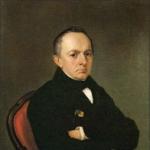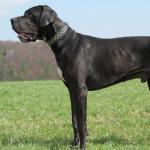Sergei Kiriyenko (not to be confused with the author of books Sergei Ivanovich Kiriyenko) is an entrepreneur and politician. Ex-general director of Rosatom, as well as deputy head of the Presidential Administration of the Russian Federation. Sergey Vladilenovich's track record includes many notable awards, including the Anatoly Koni medal and the Order of Honor.
Childhood and youth
Sergey Vladilenovich Kirienko was born on July 26, 1962 in the largest Abkhazian city of Sukhumi. The future politician grew up and was brought up in an exemplary family. Sergey's father - Vladilen Yakovlevich - is a professor, he defended his doctorate in philosophy, at one time he was in charge of various departments of the Volga State University of Water Transport.
His wife Larisa Vasilievna and part-time mother of Sergei is an economist by education, she studied in Odessa. It is known that Sergei Kiriyenko spent his childhood in the city of Gorky, which this moment is called Nizhny Novgorod.
Sergey's parents began to be friends from adolescence and even studied at the same school. But by the will of fate, Vladilen Yakovlevich and Larisa Vasilievna decided to go their separate ways. Ultimately, in the early 70s, the couple decided to file for divorce. Sergei's father remained to work in Gorky, and Larisa Vasilyevna moved to Sochi with the boy.

In this sunny city, which is located on the Black Sea coast, Serezha entered the prestigious school number 7 and pleased his parent with good grades in his diary. But, having received a certificate of secondary education, the young man decided to return to Gorky and apply to the Institute of Water Transport Engineers. When the guy was 22 years old, he became a certified shipbuilder and set off on a free voyage.
Sergey has established himself in front of the teachers as a diligent student who absorbs all the lectures like a sponge and does not miss classes, so the university leaders insisted that the guy go to graduate school. But the obstinate young man wanted to quickly establish himself in life, so he went to work at the factory, and in 1984 he reached military age and went to serve in the army.

At the same time, Sergei Kiriyenko followed in the footsteps of his grandfather, a prominent communist activist, and joined the ranks of the CPSU. For two years, Sergei Vladilenovich showed courage and bravery in the air force near the city of Nikolaev, and in 1986 he returned to civilian life. After demobilization, Kiriyenko began his career as a foreman at a shipbuilding plant, and then climbed the career ladder and became secretary of the Gorky Regional Committee of the Komsomol.
Politics
Sergei Vladilenovich, whose character is dominated by leadership qualities, is not used to resting on his laurels. Therefore, it is not surprising that Kiriyenko, at the age of 28, sat in the deputy chair of the Gorky Regional Council.
However, at that time the country was experiencing better times, in the second half of the 80s, perestroika began, and 1991 was marked by the dissolution of the Komsomol. But Sergei Vladilenovich shared the ideology of the party, and after the abolition of it, he kept the party card as a keepsake.

Sergei Kiriyenko connected his life with entrepreneurship and finance, entered the Academy of National Economy under the President Russian Federation, and in 1993 he became a manager of the highest qualification. Thus, Sergey Vladilenovich served as the general director of AMK Concern JSC, was the chairman of the Garantiya bank and led the NORSI-OIL oil company.
Then the businessman moved to the very heart of Russia. It is noteworthy that Sergei Kiriyenko and the politician had friendly relations, so Boris Efimovich persuaded him to pay attention to the ambitious Nizhny Novgorod businessman.

Initially, Viktor Stepanovich did not want to consider Kiriyenko as a candidate for a position in the Ministry of Fuel and Energy, referring to the fact that Sergei Vladilenovich did not have state experience. But Chernomyrdin could not resist the pressure of Nemtsov, as a result of which he conceded to his colleague. In 1988, a new stage began in the biography of Sergei Vladilenovich: he appointed him acting head of government, describing the entrepreneur as a purposeful and consistent employee.
But again, in his new post, Sergei Vladilenovich had to face difficulties, because at that time the economy in Russia was collapsing. Kiriyenko needed to carry out a series of liberal reforms, but since the financial pyramid of state short-term obligations literally hung in the balance, and oil prices rose several times, a default was declared in the country.

Sergei Kiriyenko did not stay in his new post for long, after five days Boris Nikolayevich dismissed him. But the career of Sergei Vladilenovich does not end there. The politician did not give up and in 1999 he ran for mayor of Moscow, but lost. Then he became a State Duma deputy on the list of the Union of Right Forces party, but a year later he resigned.
In 2005, Sergei Vladilenovich Kiriyenko was appointed head of Rosatom (Federal Atomic Energy Agency). In 2007, as a result of the reorganization, he became the CEO. This government organization is subordinate to the institutions and scientific centers, nuclear power plants in Russia, export of nuclear materials and fuel, construction of nuclear power plants abroad, etc.

Sergey Vladilenovich worked in Rosatom for 11 years. During his work, he set strategic goals, reduced the cost of electricity generation, optimized the number of personnel, and increased the utilization factor of the installed capacity of nuclear power plants.
However, not everyone found Kiriyenko's activity productive: Vladimir Milov said that Sergei Vladilenovich had spent billions of rubles inefficiently. And also criticized was the fact that Kiriyenko extended the operation of old power units, which was contrary to safety regulations.
Personal life
Journalists know that Sergei Vladilenovich Kiriyenko, whose height is 170 cm, is an exemplary family man. While still a schoolboy in Sochi, he met his future chosen one, Maria Aistova. By the way, Kiriyenko's wife has nothing to do with politics, the woman connected her life with medicine and works as a pediatrician. The couple raised three children: son Vladimir (1983), as well as daughters Lyubov (1992) and Nadia (2002).

Vladimir Sergeevich took over the example of his father and started doing business, he led large companies - Capital LLC, Rostelecom. Also, the power plant of the Vladimir region, a tourist camp, utilities, elevators and so on are subordinate to him.
In his free time, Sergei Vladilenovich Kiriyenko leads an active and healthy lifestyle life. The politician spends his energy on sports, among his favorites are the martial art of aikido (possesses the fourth dan) and exciting scuba diving. Sometimes Kiriyenko goes hunting or fishing with friends.

Friends and colleagues described this person as the most correct and polite, even in conflict situations. According to rumors, he has known Vladimir Putin for a long time, so he addresses the President of the Russian Federation as “you”.
Sergei Kirienko now
In 2016, Sergei Vladilenovich Kiriyenko was removed from the post of General Director of Rosatom, but joined the Supervisory Board. In the same 2016, Sergei Vladilenovich began working in the Administration of the President of Russia.

In 2017, Kiriyenko was rumored to have spoken at unannounced Kremlin briefings to reporters on condition of anonymity. Moreover, in the newspapers he was referred to as “a source in the Kremlin”, “a high-ranking official”, etc. It is also known that the politician began to engage in charity - the fight against childhood cancer.
Achievements
- 1998 - Chairman of the Government of the Russian Federation
- 1999-2000 - Deputy of the State Duma
- 2000 - Plenipotentiary Representative of the President of the Russian Federation in the Volga Federal District
- 2001 - Chairman of the State Commission of the Russian Federation for Chemical Disarmament
- 2005-2016 - General Director of the State Atomic Energy Corporation "Rosatom"
- 2016 - First Deputy Head of the Administration of the President of the Russian Federation
Kirienko Sergey Vladilenovich
Biographical information: Sergey Vladilenovich Kiriyenko was born on July 26, 1962 in Sukhumi. Higher education, in 1984 he graduated from the shipbuilding department of the Gorky Institute of Water Transport Engineers. In 1991 - 1993 - studied at the Academy of National Economy under the Government of the Russian Federation with a specialization in Finance and Banking.
Marital status: spouse - Kirienko Maria Vladimirovna, son Vladimir, daughter Lyubov, daughter Nadezhda.
1984 - 1986 - served in the ranks of the Soviet Army. Since 1986, he worked as a foreman at the Krasnoye Sormovo shipyard. He was the secretary of the factory committee of the Komsomol, the first secretary of the Gorky regional committee of the Komsomol. In the late 1980s, he became the general director of the AMK youth concern.
In March 1990, he was elected to the Gorky Regional Council of People's Deputies.
1993 - 1996 - Chairman of the Board of Garantiya Bank. Since August 1994 - Member of the Council for Industrial Policy and Entrepreneurship under the President of the Russian Federation.
1996 - 1997 - President of the oil company "NORSI-Oil". Recommended for the post by the administration of the Nizhny Novgorod region and the Government of the Russian Federation.
On May 13, 1997, he was appointed First Deputy Minister of Fuel and Energy of the Russian Federation. Since September 2, 1997 - Deputy Chairman of the Commission of the Government of the Russian Federation for the coordination of activities federal bodies executive power and state authorities of the constituent entities of the Russian Federation for the implementation of production sharing agreements. In October 1997, he was appointed head of the Interdepartmental Commission on Access of Independent Organizations to the Gas Transportation System of RAO Gazprom.
Since October 1997, he has been a member of the Board of State Representatives in Transneft.
On November 20, 1997, by Decree of the President of the Russian Federation Boris Yeltsin, he was appointed Minister of Fuel and Energy of the Russian Federation. On April 24, 1998, by Decree of the President of the Russian Federation Boris Yeltsin, he was appointed Chairman of the Government of the Russian Federation. On August 23, 1998, by the Decree of the President of the Russian Federation Boris Yeltsin, the government of S. Kiriyenko was dismissed in full force.
On December 18, 1998, the all-Russian public political conservative movement New Force, headed by Sergei Kiriyenko, was registered with the Ministry of Justice of the Russian Federation. 1999 - co-chairman and leader of the Electoral Bloc "Union of Right Forces".
On December 19, 1999, he was elected to the State Duma of the Federal Assembly of the Russian Federation on the party list of the Union of Right Forces electoral bloc (No. 1 on the list). Elected leader of the faction "Union of Right Forces" in the State Duma of the Federal Assembly of the Russian Federation of the third convocation.
On May 18, 2000, by decree of the President of the Russian Federation Vladimir Putin, he was appointed Plenipotentiary Representative of the President of the Russian Federation in the Volga Federal District. Since May 2001 - Chairman of the State Commission of the Russian Federation for Chemical Disarmament.
From the book Betrayers of the USSR author Strigin Evgeny MikhailovichKirienko Sergei Vladilenovich Biographical information: Sergei Vladilenovich Kirienko was born on July 26, 1962 in Sukhumi. Higher education, in 1984 he graduated from the shipbuilding department of the Gorky Institute of Water Transport Engineers. In 1991 - 1993 - studied at the Academy
From the book Newspaper Tomorrow 228 (15 1998) author Tomorrow NewspaperWHO IS BEHIND THE KIRIENKO DOLL? The performance in the Duma with Kiriyenko in the title role was interesting to the public. It is interesting because she did not know either the purpose of the presentation or its authors.
From the book Newspaper Tomorrow 242 (29 1998) author Tomorrow NewspaperCARRIED OUT BY THE MARKET (an open letter to the Prime Minister of the Russian Federation SV Kiriyenko) Mr. Prime Minister, The Association for the Protection of the Rights of Refugees and Forced Migrants “Adept” has prepared a PROGRAM FOR THE INTEGRATION OF FORCED MIGRANTS INTO THE MARKET ECONOMY OF RUSSIA. Document
From the book Newspaper Tomorrow 244 (31 1998) author Tomorrow NewspaperWILL KIRIENKO BE CALLED “BLOODY”? Kiriyenko, who just wants to say “Stop nodding your head!” For the first time began to threaten the miners who settled on the railway tracks. Threaten to "put things in order". Demands from hungry muzhiks to observe the law. Makes it clear that
From the book Newspaper Day of Literature # 138 (2008 2) author Literature Day NewspaperSergei Shargunov AARP My congratulations to Prokhanov will probably be impudent, but sincerely, from the bottom of my heart. To paraphrase Gorky's statement about Lenin, Prokhanov is all in words, like a fish in scales. In his own oral and written words, in words about him...
From the book Russia and Germany. Play off! From Wilhelm's Versailles to Wilson's Versailles. A new look at an old war the author Kremlev SergeySERGEY KREMLYOV (Sergei Tarasovich Brezkun) Ukrainian. Born October 7, 1951 in Dnepropetrovsk in the family of a railway engineer. Graduated high school in the city of Kerch and the engine building faculty of Kharkov aviation institute them. NOT. Zhukovsky by
From the book Newspaper Day of Literature # 76 (2002 12) author Literature Day NewspaperSergei Shargunov Hurray! GRANDMA IS DIFFERENT I didn't find her. A Soviet writer, a noblewoman, who seduced everyone with her beauty. Beauty, memories testify, and black-and-white pictures hoarsely tell me, was icy. Big blue eyes, regular ruddy features
From the book Union of Right Forces. Short story parties author Benediktov KirillPortrait: Sergei Kiriyenko Sergei Kiriyenko entered the recent history Russia as the "father of the default" of 1998. The default began with the government's decision to freeze payments on GKOs and OFZs, external debts of commercial banks and companies, and to expand the ruble's currency corridor for several years.
From the book Who's Who. On the couch of President Kuchma author Melnichenko NikolaySergei Dovgan At the moment, he is not a serious political figure. Until 2000, he was the leader of the Peasant Party, the closest associate of the Chairman of the Verkhovna Rada, Alexander Tkachenko. In 1999 he played his only notable and important political
From the book Enemies of the People: from Officials to Oligarchs author Sokolov-Mitrich DmitryPresidential envoy Sergei Kiriyenko drank vodka and learned military secrets October 2000. Nizhny Novgorod - Kirov: - Here is the office of Sergei Vladilenovich. - An employee of the plenipotentiary's office opened a light office door for me. - Here is the conference table, plasma panel,
From the book "Dirty laundry" of the Kremlin. Exposure of top officials of the Russian Federation author Chelnokov Alexey SergeevichKinder Surprise (SV Kiriyenko, head of the state corporation Rosatom, former prime minister) The fourth ex-prime minister of Russia, in a purely chronicle interpretation, Sergei Kiriyenko is a representative of the second wave of young reformers. His short and unfortunate tenure
From the book Russian writers about Jews. Book 2 author Nikolaev Sergey NikolaevichSERGEY SEMANOV
From the book Russia, which we are catching up with the author"KINDERSURPRISE-2": THE PROJECT CONTINUES The "Glazyev Block" campaign will be led by Kiriyenko's people Ilya Mussorgsky August 12, 2003 0 33(508) Date: 13-08-2003 Author: Ilya MUSSORGSKY "the people of Kiriyenko Po will lead
Name: Sergey Vladilenovich Kirienko Date of birth: July 26, 1962. Place of birth: Sukhumi, USSR
Childhood
The future politician was born in the south of the USSR, in Abkhazia. His father, Vladilen Yakovlevich Izraitel, was the son of an ardent communist. Yakov Vladimirovich Izraitel commanded the frontier post. According to family legend, when the fire broke out in the house, he threw himself into the fire to save the party card.
Vladilen Yakovlevich graduated from the Moscow State University, received the academic title of Doctor of Philosophy and Professor and worked at the Gorky Institute of Water Transport Engineers. Professor Izraitel taught scientific communism, since 1990, when this discipline lost popularity, he headed the department of political science, and then in 1992-1995 he headed the department of humanities and social sciences.
Mother, Larisa Vasilievna Kiriyenko, met her future husband at school. She graduated from the Odessa Economic Institute. The family lived in Sochi, then moved to Gorky. And in the early 1970s, the marriage broke up. Larisa Vasilievna returned to Sochi, having regained her maiden name and under it she wrote down her son.
Sergei Vladilenovich has a half-sister, who also bears her mother's surname. Anna Kotelnikova is now in business. According to the media, among its assets is a company producing spices, seasonings, complex food additives and flavors, two Starik Hottabych stores in Nizhny Novgorod. She is also a co-owner of the Nizhny Novgorod shopping center "New Era".
Education
Sergei graduated from high school in Sochi, but went to his father to enter Gorky (now Nizhny Novgorod). In 1984 he graduated from the shipbuilding department of the Gorky Institute of Water Transport Engineers.
Kiriyenko received his second higher education at the Academy of National Economy under the Government of Russia. He mastered the specialty "Finance and banking" in 1991-1993.
Komsomol leader
In the year of graduation from the institute, Sergei Kiriyenko joined the CPSU. He served in the army for two years, and then entered the Krasnoye Sormovo shipyard as a foreman. But the production did not stay.
In 1986, he became the secretary of the Komsomol committee of the plant, and then received the post of first secretary of the Gorky regional committee of the All-Union Leninist Communist Youth Union.
At the end of the USSR, the Komsomol leaders opened up unimaginable until recently prospects. They were skeptical about the ideals of communism, and completely positive about the coming market. In addition, these people were energetic, careerists, while they had useful connections, they knew how to please their senior comrade, otherwise they would not have made a career in the Komsomol, and they observed internal corporate solidarity.
Many representatives of the Komsomol of the era of perestroika easily joined the ranks of the new elite. The most famous of them were Mikhail Khodorkovsky and Sergei Kiriyenko.
One of the key events for Kiriyenko was the organization of a diversified "Joint Stock Youth Concern", abbreviated AMK. He became the president of the organization and an active participant in the Surgut Initiative movement, which united reformist Komsomol secretaries. In March 1990, Sergei Kiriyenko was elected to the Gorky Regional Council of People's Deputies.
From activists to managers
Kiriyenko approached the new realities of post-Soviet Russia thoroughly. He received a higher economic Education in a prestigious university, and after graduation he headed the board of the Nizhny Novgorod social and commercial bank Garantiya.
In 1996, Kiriyenko headed the oil company NORSI-Oil. He was recommended by the then governor of the Nizhny Novgorod region Boris Nemtsov and the Russian government.
And in May 1997, Kiriyenko entered the government directly. He was appointed First Deputy Minister of Fuel and Energy of Russia.
He was dragged to Moscow by Boris Nemtsov, who became the first ban in the government of Viktor Chernomyrdin and head of the Ministry of Fuel and Energy. The young reformers again approached power - in 1991-1992, this was the name given to the government of Yegor Gaidar, in 1997 - to Deputy Prime Ministers Nemtsov and Anatoly Chubais.
In the fall, Kiriyenko joined the commission for coordinating the activities of federal executive authorities and state authorities of the constituent entities of the Russian Federation on the implementation of production sharing agreements and headed the commission for access of independent organizations to the gas transmission system of RAO Gazprom. He was one of the representatives of the state in AK Transneft.
On November 20, 1997, Boris Nemtsov gave way to Kiriyenko as head of the Ministry of Fuel and Energy. And six months later, in April 1998, Sergei Kiriyenko headed the Cabinet of Ministers, becoming the youngest prime minister in history. He was 35.
catastrophic kinder surprise
Kiriyenko's short stay in one of the highest government posts was marked by an economic catastrophe, which is still remembered today. His government was also called young reformers, after which the era of liberal economic experiments in modern Russia ended. It can be said that it was during the reign of Kiriyenko that the ideas of the “young reformers” were finally discredited.
Popular rumor placed the main blame for the default in 1998 on him. It was later that the experts, at first cautiously, and then more actively, explained to the population that during the short time in power, Kiriyenko would not have had time to inflict such monstrous damage on the economy, that the financial pyramid of state short-term obligations was about to collapse, that there were not enough state treasury funds even for the fulfillment of obligations to state employees, not to mention payments on external debt, which in total amounted to 170 billion dollars ...
Three days before the "X" day, Russian President Boris Yeltsin assured his excited fellow citizens that there would be no devaluation, that everything had been calculated and everything was under control.
Technical default on the main types of government debt - for the first time in Russian history- Kiriyenko announced on August 17, 1998. And contrary to the president's statements, the ruble collapsed. "Deceived" - that was the verdict of society. The Russians, taught by the bitter experience of the monstrous inflation of the early 1990s, called the prime minister a "kinder surprise" (the nickname stuck for a long time) and rushed to buy the currency.
Later, Kiriyenko admitted that he underestimated the strength of the psychological blow and the resulting panic. The dollar exchange rate jumped like crazy, ruble deposits depreciated twice, foreign exchange banks did not give out, and the currency itself in exchange offices ended pretty soon. Prices jumped.
Interestingly, Yeltsin himself, it seems, was well aware that Kiriyenko took the brunt of his reputation and was certainly not to blame for the crisis. He tried as much as possible to keep the Kiriyenko government in power, until the State Duma passed a resolution of no confidence in the government. The deputies demanded Kiriyenko's resignation and got what they wanted. However, the president suggested that Kiriyenko enter Primakov's government as a vice-premier.
Kinder Surprise prudently refused. Apparently, for the first time he had enough impressions.
From the Union of Right Forces to the presidential embassy
Kiriyenko survived the political knockout and did not leave politics. In December 1998, he headed the All-Russian public political conservative movement "New Force" and became one of the leaders of the Union of Right Forces. Others were old acquaintances - Boris Nemtsov, Anatoly Chubais, Irina Khakamada ...
In 1999, the Union of Right Forces won more than eight percent of the vote and entered the State Duma. Kiriyenko became the leader of the faction. He became the main rival of Yuri Luzhkov in the mayoral elections, and became the first politician in Russia to use the World Wide Web in his work. Kiriyenko launched the Moscow Alternative project, under which residents of the capital could not only call, but also send their complaints and suggestions via the Internet.
But they failed to overthrow the mayor of Moscow, Kiriyenko. In order to squeeze Luzhkov out of Russian politics, it will take another decade.
But Kiriyenko's services were not forgotten. By then he was well acquainted with Vladimir Putin and managed to combine liberalism with complete loyalty to the man who was to become the next Russian president after Yeltsin.
In May 2000, Kiriyenko returned to Nizhny Novgorod as the plenipotentiary representative of the President of Russia in the Volga Federal District. In May 2001, having retained his post, Kiriyenko headed the commission on chemical disarmament.
Thunderstorm of the Regionals
With the advent of Kiriyenko to the post of plenipotentiary representative in the Volga Federal District, a rather exciting political life. Contests and games were held, applicants for the positions of federal inspectors were selected. It was through participation in them that some fairly young leaders got into politics, including Dmitry Ovsyannikov, who is now the governor of Sevastopol.

The representatives of the elite were not at all happy - when Kiriyenko was plenipotentiary, overly independent governors - Yuri Goryachev, Vyacheslav Kislitsyn and Vladimir Sergeenkov (Ulyanovsk Region, Mari El and Kirov Region) lost their posts. Moreover, the plenipotentiary could not be reproached for using his official position and promoting liberal economic reforms- the heads of the regions were not replaced by the “young reformers”, but by a general, a member of the Liberal Democratic Party and a nomenklatura.
In the Nizhny Novgorod region, the election of the governor was won by the communist Gennady Khodyrev. However, in 2002, he left the Communist Party of the Russian Federation in protest against the exclusion from the party of the then speaker of the State Duma Gennady Seleznev and deputies Nikolai Gubenko and Svetlana Goryacheva. However, as some media write, it was Kiriyenko who persuaded Khodyrev to break with the Communist Party.
True, this did not help Khodyrev to stay in the post of governor - in 2005 he was replaced by Valery Shantsev, who held the post for 12 years.
Atomic engineer
On November 15, 2005, Kiriyenko's career took a new turn. Russian President Vladimir Putin appointed him head of the Federal Atomic Energy Agency of Russia, and in 2007, after the reorganization, Sergey Vladilenovich became the general director of the state corporation Rosatom.
In total, he had to lead the nuclear economy of Russia for more than ten years. As the nuclear scientists noted, Kiriyenko got used to the new engineering world rather quickly and spoke to them in “their language”, and the militarized empire, left over from the Cold War and including not only hundreds of factories and research institutes, but also ten closed cities, began to resemble a Western company.
Nevertheless, Kiriyenko failed to achieve all of his goals, partly for objective reasons. Nuclear energy was losing popularity in the world, which was facilitated by the accident at Fukushima. In addition, the rate of depletion of the resource of nuclear power reactors was significantly ahead of the pace of construction and commissioning of new nuclear power plants.
Many experts believe that under Kiriyenko it was not possible to create a significant potential for increasing nuclear capacity in Russia.
During the years of work at Rosatom, Kiriyenko, with the participation of Russian nuclear scientists, completed and put into operation the first nuclear power plant in the Middle East, in Iranian Bushehr. Rosatom took part in the commissioning of three reactors in China and two in India. Three dozen more power units are currently under construction in the world. different countries. Kiriyenko managed to form a portfolio of international contracts, the total value of which by 2025 exceeded one hundred billion dollars. And finally, an important fact - under Kiriyenko, not a single serious accident occurred at Russian nuclear power plants. Safety at nuclear facilities is treated strictly.
In the presidential administration
On October 5, 2016, Sergei Kiriyenko was appointed First Deputy Head of the Presidential Administration.
Political scientists perceived this appointment as a search for alternative ways - Kiriyenko, in their opinion, did not really fit into the ideological mainstream recent years. It was assumed that in this way they were trying to modernize the management of the regions - just like Rosatom.
Kiriyenko's sphere of activity in the presidential administration includes the domestic political bloc - elections at all levels, interaction with political parties, public organizations and youth policy. Sergei Vladilenovich is subordinate to the departments of domestic policy and public projects. He also oversees online publications and social networks.
Recently it became known about closed briefings given by the first deputy head of the administration for selected journalists. Among the lucky ones were representatives of nine publications - the newspapers Vedomosti, Kommersant, Rosbusinessconsulting, MK, Izvestia, Komsomolskaya Pravda, the Gazeta.ru online newspaper, RIA Novosti and TASS news agencies, as well as the Dozhd TV channel .
Thus, Kiriyenko disseminated information about the upcoming transfer of St. Isaac's Cathedral to the Russian Orthodox Church. Journalists were asked to refer to “a source in the Kremlin” or “a source close to the administration of the President of Russia” and in no case mention that the information was obtained during a closed meeting with journalists.
Personal life
Sergei Kiriyenko got married while studying in his third year. With the chosen one, Maria Vladislavovna Aistova, he met at school in Sochi. There, Maria graduated from medical school and after that she left for Gorky, to her fiancé. She graduated from the Medical Institute already there, her specialty is a pediatrician. Maria Vladislavovna is still working as a doctor.
The Kiriyenkos have three children. The most famous son, Vladimir. He was born in 1983, graduated from higher school Economics in Moscow with a degree in finance and credit and made a rapid career, starting as a member of the board of directors of Garantiya Bank, founded by his father. According to the media, he is responsible for the family business, he has several companies and even a power plant to his credit. At the end of September 2016, Vladimir Kiriyenko took over as senior vice president of Rostelecom. At the same time, he replaced one of the most experienced top managers in the industry, Larisa Tkachuk. Rostelecom did not explain the reasons for this decision.
Vladimir Sergeevich is married, in 2007 his son was born.
The eldest daughter, Lyubov, was born in 1990. She received a degree in management and, according to media reports, works at the Mikhailov and Partners PR agency.
The youngest daughter, Nadezhda, was born in 2002. Now she is in school.
Sergey Kiriyenko is seriously interested in martial arts. He is a 4th dan in aikido.
Income
In 2016, according to the declaration, Sergey Kiriyenko earned more than 85 million rubles. The contribution of his wife is much more modest - more than 353 thousand rubles. Owned by Sergei Vladilenovich - land plot with an area of more than 7 thousand square meters, a residential building, a residential building, an outbuilding and a sports and recreation block. An apartment of 254 "squares" is registered in the name of Nadezhda's daughter.
Plenipotentiary Representative of the President of the Russian Federation in the Volga Federal District since May 2000; was born on July 26, 1962 in the city of Sukhumi, Abkhaz ASSR; Graduated from the Gorky Institute of Water Transport Engineers with a degree in engineering ... ... Big biographical encyclopedia
- (b. 1962), statesman. In 1989, 91 master, secretary of the Komsomol committee of the Krasnoye Sormovo shipbuilding plant, secretary of the Gorky regional committee of the Komsomol. Since 1994, Chairman of the Board of Garantiya Bank, in March May 1997 President ... ... encyclopedic Dictionary
- (b. 1962), Chairman of the Government of the Russian Federation in April - August 1998. In 1986-91 master, secretary of the Komsomol committee of the Krasnoye Sormovo shipbuilding plant, secretary of the Gorky regional committee of the Komsomol. Since 1994 Chairman ... ... Big Encyclopedic Dictionary
KIRIENKO Sergey Vladilenovich- (born July 26, 1962) Plenipotentiary Representative of the President of the Russian Federation V.V. Putin in the Volga Federal District from May 18, 2000 to November 14, 2005. Head of the Federal Atomic Energy Agency from November 15, 2005. Born in Sukhumi Abkhaz ASSR. Grandfather ... ... Putin Encyclopedia
Sergei Kiriyenko speaks at the World Economic Forum in Davos. January 26, 2000 ... Wikipedia
Sergei Vladilenovich Kiriyenko Sergei Kiriyenko speaks at the World Economic Forum in Davos. January 26, 2000 ... Wikipedia
Vladilenovich (b. July 26, 1962, Sukhumi, Abkhazia) Russian statesman and public figure. In March 1998, after the resignation of the government of V. S. Chernomyrdin, he was introduced by the president to the post of chairman of the government. The State Duma… … Political science. Dictionary.
Kirienko, Sergei- Director General of the State Corporation Rosatom General Director of the State Corporation Rosatom, former head of the Federal Atomic Energy Agency of Russia (2005 2008). Chairman of the Board of Directors of Atomenergoprom (since 2007), head ... ... Encyclopedia of Newsmakers
Sergei Vladilenovich Kirienko- Director General of the State Atomic Energy Corporation Rosatom Sergey Vladilenovich Kirienko was born on July 26, 1962 in the city of Sukhumi, Abkhaz ASSR. His father Vladilen Yakovlevich Izraitel was a teacher of philosophy, later ... ... Encyclopedia of Newsmakers
Early years. Education
Sergey Kirienko (mother's surname) was born into the family of Professor Vladilen Yakovlevich Izraitel and economist Larisa Vasilievna Kirienko.Kiriyenko's parents met as children. They lived in the same house, studied at the same school, got married during their student days. early years Sergei went to Gorky (now Nizhny Novgorod), and when the parents of the future politician separated in the early 70s, his father stayed to live and teach in Gorky, and Sergei and his mother moved to Sochi. In the 4th grade, the younger Kiriyenko went to the Sochi secondary school No. 7.
However, after graduating from school, he returned to Gorky, entered the Institute of Water Transport Engineers, where his father taught, and at 22 became a certified shipbuilding engineer.

The future politician already in his student years established himself as an intelligent, sociable, self-confident leader-organizer. I studied with straight A's, listened to lectures very carefully and took an active part in seminars.
Sergei Kiriyenko at Pozner's
The university teachers did not want to let the talented student go and offered to continue his studies in graduate school, but Sergei chose to go to work at the factory, and in 1984 he joined the army. Until 1986, he served in the air force near the Ukrainian city of Nikolaev, during his service he was in the position of a castle platoon commander.
In the same 1984, he joined the ranks of the CPSU. His grandfather Yakov (on the paternal side) was a prominent communist activist, and Sergei Kiriyenko followed in the footsteps of his ancestor, and was also devoted to the party. After the liquidation of the CPSU in 1991, he even left his party card as a keepsake.
Political career
Start labor activity Kiriyenko was laid in 1986, at a shipyard in the Sormovsky district of Nizhny Novgorod ("Krasnoye Sormovo"). Sergei Kiriyenko was hired as an ordinary foreman, and very soon, thanks to his organizational skills, the team of welders became the leader in production. He also led an active social life as secretary of the Komsomol factory committee. A smart, active, hardworking young man attracted the attention of his party colleagues and was soon appointed secretary of the Gorky regional committee of the Komsomol.Election video for Sergei Kiriyenko (1999)
At the age of 28, Sergei Kiriyenko was elected to the Gorky Regional Council of People's Deputies. In 1991 he entered the Academy of National Economy under the President of the Russian Federation, from which he graduated in 1993 with a degree in finance and banking, becoming a highly qualified manager.

In the period from 1992 to 1997, he was the general director of the youth concern AMK, chairman of the board of the bank, president of the oil state company NorsiOil, which was absorbed by Lukoil in 2001.
A significant stage in the career of Sergei Kiriyenko was his appointment in May 1997 to the post of First Deputy Minister of Fuel and Energy of the Russian Federation. Six months later, in the fall of 1997, Sergei Kiriyenko, at the age of 35, was appointed by Boris Yeltsin to the post of Minister of Fuel and Energy of the Russian Federation.

From April to August, Kiriyenko headed the Government of the Russian Federation, on December 14, 1997, Sergei Kiriyenko was elected to the State Duma of the second convocation.
Kiriyenko presents the new head of the FSB, Vladimir Putin (1998)
He was the leader of the parties and political movements "New Force" (1998), "Union of Right Forces" (1999-2000).
An important milestone in Kiriyenko's career was his approval on December 12, 2007 as the Director General of Rosatom State Corporation, a holding that unites more than three hundred nuclear enterprises.
Kiriyenko on the prospects for the nuclear industry in Russia
On October 5, 2016, he was appointed by decree of Russian President Vladimir Putin to the position of First Deputy Head of the Presidential Administration of the Russian Federation instead of his predecessor Vyacheslav Volodin, who, in turn, was promoted to Speaker of the State Duma of the VII convocation. Alexey Likhachev, a longtime acquaintance of Sergei Vladilenovich, was appointed the new head of Rosatom after Kiriyenko left.
Personal life of Sergei Kiriyenko
Sergei Kiriyenko is married to Maria Vladislavovna Aistova. A woman is a doctor by education, she worked as a pediatrician. The politician met his future wife in Sochi, in school years, and young people created a family during their student days, when they were 19 years old. 
Sergei Kiriyenko is a faithful husband and caring father. The couple have three children: son Vladimir (born in 1983) and two daughters - Lyubov (born in 1992) and Nadezhda (born in 2002). Son Vladimir is a successful leader and businessman, he held high positions in large organizations: Capital LLC, Rostelecom, Titanium Investments. Vladimir Sergeevich is the owner of a power plant in the Vladimir region, a co-owner of Sarovbusinessbank.

Sergei Kiriyenko is active in political and state work. His priorities are family preservation, sports (aikido, scuba diving), outdoor activities (hunting, fishing), rich social activities (social, cultural, informational, educational areas).

Sergei Kirienko now
In October 2016, Sergei Kiriyenko assumed the duties of First Deputy Head of the Presidential Administration. The first event in the new position was the forum of the ONF movement, held in Yalta. 




















